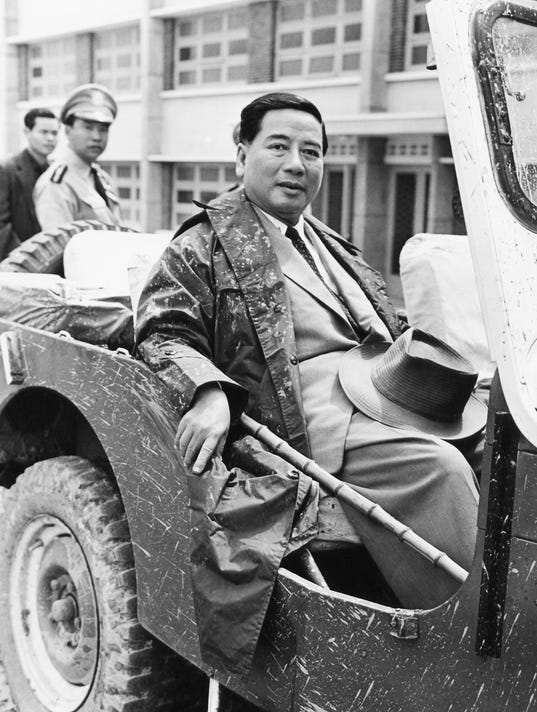The U.S. government lends its support and trust to the political leader of a strategic ally only to see that friend turn foe.
It happened in Vietnam 50 years ago, when South Vietnamese President Ngo Dinh Diem turned repressive and was assassinated. It happened in Panama, where strongman Manuel Noriega worked for the CIA until he was captured during a U.S. invasion in 1989 and convicted of drug trafficking and money laundering. And we saw it in Egypt, where the U.S. continued to support President Hosni Mubarak despite his human rights abuses and corruption until he was overthrown in a popular uprising in 2011.
Now, the U.S. government is in a bind over what to do about Iraqi Prime Minister Nouri al-Maliki, who is refusing to give up his reins on power despite calls by onetime supporters in Iraq and the United States to go away.
The main U.S. concern: Al-Maliki's Shiite-dominated government has deeply alienated minority Sunnis, and that has allowed the radical — and potent — Sunni militant group known as the Islamic State to take over much of the country. The U.S. wants a new prime minister who can build a more inclusive government.
On Monday, Iraqi President Fouad Massoum named a replacement for al-Maliki, and U.S. Secretary of State John Kerry pressed al-Maliki to exit. But al-Maliki is showing no signs of going away, insisting on serving a third four-year term.
So if President Obama didn't already have enough worries now that the U.S. military has been brought back into the fighting in Iraq, with airstrikes against the militants in Iraq's Kurdish region, he has to worry about a constitutional crisis and possible outbreak of violence in the capital, Baghdad.
The U.S. was never smitten with al-Maliki during his eight years in charge because he is a polarizing figure and never tried to make lasting peace between Shiites and Sunnis, who are bent on killing one another. Plus, he would not agree to let U.S. troops stay in Iraq under terms the U.S. wanted, so U.S. combat forces pulled out in 2011.
Al-Maliki's saving grace was that he was a democratically elected leader who held the country largely together — until now.
The U.S. dilemma over what to do about al-Maliki is eerily similar to problems the Obama administration encountered with Afghanistan President Hamid Karzai, also a staunch U.S. ally until recently.
The U.S. has grown unhappy with Karzai's stewardship, failure to crack down on corruption and refusal to sign a long-term security agreement that would allow U.S. troops to stay in Afghanistan. Karzai has complained about U.S. drone strikes that have killed civilians and Washington's efforts to go around him to make contact with the Karzai regime's enemy, the Taliban.
At least, the U.S. expects Karzai to step down soon, assuming a dispute over who won the recent presidential election to succeed him is resolved.
The U.S. can't say that about al-Maliki. It is a reminder that the U.S. government and its allies in unstable countries are only as good as their last mutual interest.
"We've got to stop looking for angels (in political leaders). There are no angels," says Michael Rubin, an analyst at the American Enterprise Institute. "There are survivors."
It's a tough lesson to remember.



0 comments:
Post a Comment